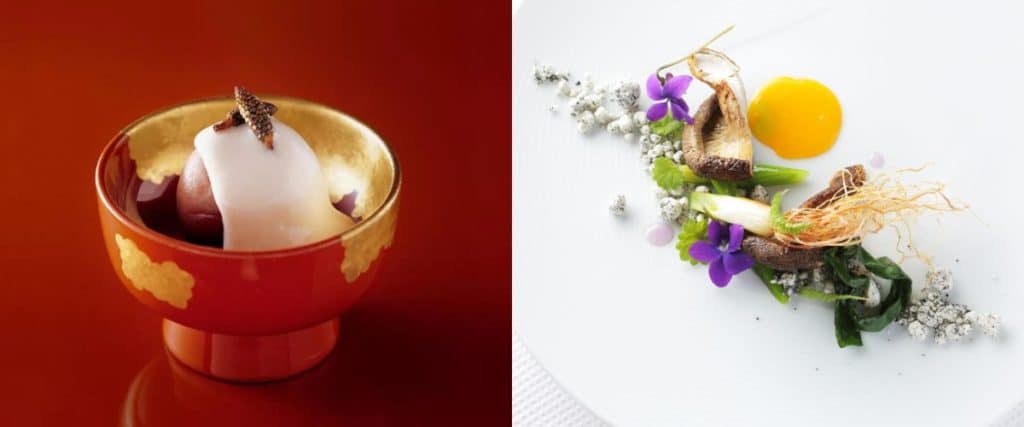Following a surge of eager tourists ready to return to Japan once its borders opened, the country’s revived gourmand scene draws global foodie crowd.
Since Japan lifted its travel restrictions for international tourists, travellers from around the world are returning to the popular travel destination to explore its rich culture and gastronomy.

guide.michelin.com & guide.michelin.com
Spotlighting Kyoto’s traditional cuisine, Japan’s Agency for Cultural Affairs has decided to register “Kyo-ryori” as a national intangible cultural property. Adding to Japanese food, or washoku‘s, designated intangible cultural heritage title by UNESCO in 2013, Kyoto’s unique culinary culture has been refined over centuries, from artistry, to furnishings, to hospitality contributing to Kyo-ryori.
The 2023 Kyoto Osaka MICHELIN Guide has also been released featuring 389 selected eateries, 41 of which have been newly listed. Among which, Ryō-Shō and VELROSIER have been newly awarded Two MICHELIN Stars. Meanwhile in Osaka, 193 restaurants are within the selection, of which 22 are new.

Shinjuku’s Bar Benfiddich by Hiroyasu Kayama was also recently awarded 48th place on this year’s World’s 50 Best Bars list. Specialising in farm-to-bar cocktails, owner and mixologist Hiroyasu derives most of his fresh herbs and ingredients directly from his own farm sustainably.

Miyakonojo, in Kyushu’s Miyazaki prefecture, will be launching a “Meat Meet” programme recommending local restaurants and offering special packages combining accommodation and dining options in the area aimed at “those who love meat and shochu, as well as craft beer and Japanese wine.”
The 7th UNWTO World Forum by the United Nations’ World Tourism Organization (UNWTO), the Basque Culinary Center (BCC), the Japan Tourism Agency, and the Nara Prefectural Government, will be held in Nara this year from the 12th to 15th of December. Themed “Gastronomy Tourism for People and Planet: Innovate, Empower and Preserve,” the Forum will focus on the role of gastronomy tourism in promoting women empowerment and young talents, advancing cultural exchange and authenticity, enhancing the value for destinations and food producers, as well as showcasing best practices in destination branding through gastronomy tourism and supporting a Global Roadmap on Food Waste Reduction in Tourism.

Learn more about Japanese gastronomy through the Japan National Tourism Organization (JNTO).
Featured banner image credit: guide.michelin.com & unwto.org
Related Articles
Japan Opens Borders to International Travel, GDP Expected to Bounce Back
The Ethical Spirits & Co: The Craft Gin Distillery Promoting Sustainability in the Sake Industry





